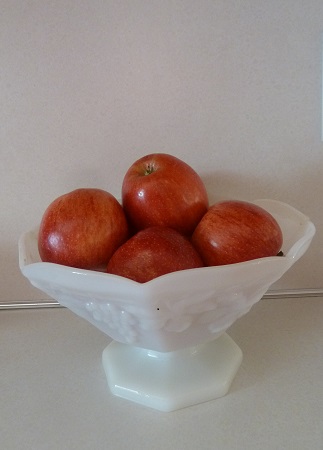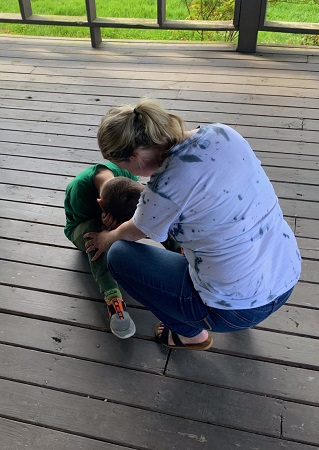Apple of My Eye
 Over the years, several children and youth have become the apple of my eye. I love them a bushel and a peck and consider them my children. They have included:
Over the years, several children and youth have become the apple of my eye. I love them a bushel and a peck and consider them my children. They have included:
- Youth in my Sunday school class
- Children of friends and family
- International students
The apple of my eye is someone or something special or cherished.
I favor them over others. Feelings run deep.
Often, as in Shakespeare’s A Midsummer Night’s Dream, this expression refers to a romantic relationship.
“Flower of this purple dye,
Hit with Cupid’s archery,
Sink in apple of his eye”
This expression appears several times in the Bible.
“In a desert land he [God] found him [Israel], in a barren and howling waste. He shielded him and cared for him; he guarded him as the apple of his eye” (Deuteronomy 32:10 NIV).
“Keep my command and you will live; guard my teachings as the apple of your eye” (Proverbs 7:2 NIV).
“For this is what the Lord Almighty says: ‘After the Glorious One has sent me against the nations that have plundered you—for whoever touches you touches the apple of his eye—’” (Zechariah 2:8 NIV).
As seen in these verses and in the verse below, the expression refers to both human and non-human objects of affection.
God wants everyone as His children, the apple of His eye.
Accepting God’s gift makes all the difference for this life and the life to come.
“Keep me as the apple of your eye; hide me in the shadow of your wings” (Psalm 17:8 NIV).
Thanks to Beckham Wilson for the suggestion.
Do you have an expression you want explained or a thought about this one? If so, please comment below.
Subscribe to receive my weekly posts by email and receive a free copy of “Words of Hope for Days that Hurt.”
If you enjoyed this post, please share it with your friends.
 “Tell me the truth. You will feel better if you do. Confession is good for the soul.”
“Tell me the truth. You will feel better if you do. Confession is good for the soul.” To view salt of the earth, take a trip across Utah’s Bonnieville Salt Flats. I thought that solid white scene would last forever.
To view salt of the earth, take a trip across Utah’s Bonnieville Salt Flats. I thought that solid white scene would last forever. My friend Phyllis recently had an ox in the ditch. She and her husband dressed for church. Then they noticed a cow having trouble birthing its calf. Their cow needed help. Putting
My friend Phyllis recently had an ox in the ditch. She and her husband dressed for church. Then they noticed a cow having trouble birthing its calf. Their cow needed help. Putting  When we want to check if something happened, we look in the books.
When we want to check if something happened, we look in the books. Please welcome my friend Carlton Hughes as today’s guest writer. Carlton and I met at
Please welcome my friend Carlton Hughes as today’s guest writer. Carlton and I met at  I used to go to church with a man who introduced me to this phrase. Whenever I greeted him and asked how he was doing, he always answered the same way.
I used to go to church with a man who introduced me to this phrase. Whenever I greeted him and asked how he was doing, he always answered the same way. We read about a wolf in sheep’s clothing in Aesop’s Fables and the Bible. Both show the danger of an enemy who looks like a friend.
We read about a wolf in sheep’s clothing in Aesop’s Fables and the Bible. Both show the danger of an enemy who looks like a friend.
 Everyone knows we cross a bridge when we come to it.
Everyone knows we cross a bridge when we come to it. Prayer prepares us to cross a bridge when we come to it.
Prayer prepares us to cross a bridge when we come to it. To bear our cross means to carry a burden.
To bear our cross means to carry a burden.  Some people go by the book. Others
Some people go by the book. Others